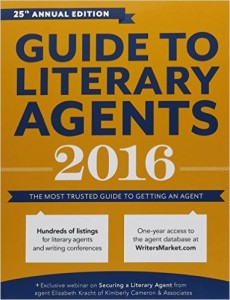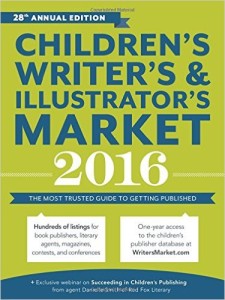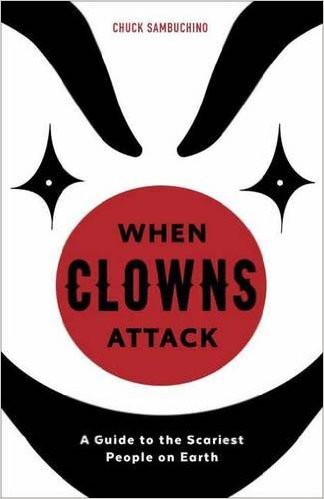new posts in all blogs
Viewing: Blog Posts Tagged with: Queries, Proposals &, Most Recent at Top [Help]
Results 1 - 5 of 5
How to use this Page
You are viewing the most recent posts tagged with the words: Queries, Proposals & in the JacketFlap blog reader. What is a tag? Think of a tag as a keyword or category label. Tags can both help you find posts on JacketFlap.com as well as provide an easy way for you to "remember" and classify posts for later recall. Try adding a tag yourself by clicking "Add a tag" below a post's header. Scroll down through the list of Recent Posts in the left column and click on a post title that sounds interesting. You can view all posts from a specific blog by clicking the Blog name in the right column, or you can click a 'More Posts from this Blog' link in any individual post.
 I get mail! My inbox is always filled with questions. Today I’m answering some I’ve received on the topic of Query Letters.
I get mail! My inbox is always filled with questions. Today I’m answering some I’ve received on the topic of Query Letters.
You’ve said on your blog, “don’t pitch a novel unless it’s complete.” Do you feel the same about query letters? Do we only query completed works, or are ideas fair game?
If you are sending a query to an agent, only pitch projects that are ready to go. If it’s a novel and you are not previously published with a mainstream commercial publisher, this means a completed manuscript. For non-fiction, a complete book proposal and two sample chapters will do. (But the more you’ve written, the better.) Think about it: If I read your query and I like it, the first thing you’ll hear from me is, “Please send a book proposal and sample chapters.” If that looks good and I’m seriously considering representation, I’m going to ask you for everything you’ve got. I can’t sell to a publisher without the whole shebang (unless you are multi-published and a proven commodity). You can’t query an idea, because ideas have no value without execution.
What about sending in a synopsis instead of a query?
Don’t do it. Some people send a synopsis and nothing else, not even a salutation or a closing. IMHO, it’s rude and unprofessional. In fact, I received one today. Just a one paragraph synopsis. Nothing about the author. Just a line saying, “Email me if you’re interested in seeing more.” I wasn’t interested, so I deleted it without responding.
I’m curious to know if there are any cliché phrases that you’ve found in query letters that writers absolutely, positively should avoid.
The thing about clichés is that in a few cases, when used correctly, they can be perfect in a query, especially if they make the reader laugh. In most cases, however, since your query is a writing sample, your best bet is to avoid sounding hackneyed or derivative. The best advice I can give about clichés is another cliché: When in doubt, leave it out.
I’ve heard about authors who strayed from standard guidelines and got picked up by a publisher or agent. Some people encourage us to do the same. We’re told to follow guidelines, then we’re told to stand out. I realize our writing will determine if we stand out or not, but what kind of things that stray from the guidelines would catch your attention in a good way?
I don’t expect you to be slaves to guidelines, I just try to offer tips to help you put your best writing forward. With all guidelines (on writing, pitching, querying, etc.) try to see behind the specific advice and get to the basic truth. With a query, the basic truth is that you need the agent/editor to want to see more, or you’re sunk. It’s up to you to figure out how to accomplish that goal. Use guidelines to help learn the craft of writing and the business of publishing… let them go when you don’t need them anymore. I can’t say “what kind of things that stray from the guidelines would catch my attention” because that’s as individual as the person.
Do you accept query letters for books that have been self-published? I ask this because I have one, but I’ve been seriously considering having it edited by a professional, rewriting it and then seeking representation for it.
Yes… no… maybe. It’s a common question these days but there are too many variables. The most important consideration will always be how good your book is, and how well it has the potential to sell. Most agents prefer you query with your next book, not the one that was self-published. But if you really want to give it a shot, I suggest a normal query to agents, including the self-pub information (release date, sales figures). You’ll find out soon enough if it’s catching anyone’s attention.
I know the importance of addressing the letter to a specific person, not just Sir or Madam or Dear Agent, however, even though I feel as if I know you from reading the blog, Dear Rachelle seems far too informal. Is Ms. So and So acceptable to most women who are agents?
Interestingly, I recently read some heated debate on another blog about the “Ms.” salutation. I was stunned to find that a few women seem to resent or dislike the term. Nevertheless, the correct salutation is Ms. Gardner or Mr. Smith. Once you’ve corresponded with the person, you can take your cue from how they sign their emails. I’m always just Rachelle and I’m okay being addressed that way. Personally, I don’t object to people querying with my first name rather than “Ms.” because I go to great lengths to be approachable by writing my blog.
Could you please provide the pronunciation of the word “query” that won’t make agents/editors wince? Does it rhyme with PRAIRIE or EERIE?
Leave it to an English teacher! Potayto, Potahto. Tomayto, tomahto. Your choice. Just make sure you use the preferred pronunciation of the editor/agent you’re talking to. (tee hee) As for me, I couldn’t care less how you say it. As long as you SPELL it right.
Questions, thoughts or comments about query letters?
Click on the icons below to share!
The post Answering Questions about Queries appeared first on Rachelle Gardner.
 When you’re trying to interest an agent or publisher in your book, you’re often asked to provide “comps” — other books that could be compared to yours, or books that might compete with yours. A good book proposal always has a “Competition” or “Comparable Books” section, and even if you’re self-publishing, it helps if you give readers a frame of reference in the form of similar books.
When you’re trying to interest an agent or publisher in your book, you’re often asked to provide “comps” — other books that could be compared to yours, or books that might compete with yours. A good book proposal always has a “Competition” or “Comparable Books” section, and even if you’re self-publishing, it helps if you give readers a frame of reference in the form of similar books.
One of the most common questions I’m regularly asked is, “How do I figure out what books to include in my comps?” People get all hung up on it, especially with fiction. Do I look for books with the same premise or plot? Same time period? Same writing style? How do I know what to include?
I’m going to make it easy for you.
Ask yourself, “Who are my readers? What are they reading right now?” Those are your comparable books.
Keep this line in mind:
“People who enjoy the following books are likely to enjoy my book.”
You can use that line in a proposal, then follow it with the comparable books, and for each one, a brief explanation of why your book would appeal to those same readers. This approach frees you from trying to decipher what an agent is looking for, and instead, use those comps to identify your audience.
If you can’t readily identify six to ten books or authors whom your potential readers are already reading, then you need to stop what you’re doing and get a lot more educated about what’s already out in the marketplace, and who your potential audience is. If you can’t identify your audience, then how will you or a publisher sell your book to them?
Providing “comps” is all about helping your agent, your editors, your marketing team, and your readers to capture a vision for your book.
Too often, writers tell me, “I’ve looked and looked, and I can’t find anything quite like my book.” You and I both know that’s a cop-out. Think about your potential readers, and figure out what they are already reading. It’s that simple.
To read a little more about how to create a strong Competition section for your book proposal, click HERE.
Do you know what books your potential readers are already enjoying? How do you research this?
Comment below, or by clicking: HERE.
 TWEETABLES
TWEETABLES
The one simple secret to providing “comps” for your book. Click to Tweet.
Think there are no other books like yours? Think again. Click to Tweet.
Providing “comps” for your book is as simple as knowing your audience. Click to Tweet.
Image copyright: dgilder / 123RF Stock Photo
The post Finding Comparable Books appeared first on Rachelle Gardner.

Guest Blogger: Chuck Sambuchino, editor and writer for Writer’s Digest, and host of the Guide To Literary Agents blog.
Here’s Chuck:
September 2015 sees the release of three of my new books, the 2016 Guide to Literary Agents, the 2016 Children’s Writer’s & Illustrator’s Market, and the anti-clown humor book When Clowns Attack: A Survival Guide.
To celebrate their release, we are bringing back a popular recurring contest: The “Worst Storyline Ever”—a competition that encourages terrible loglines. Winners get prizes.
The “Worst Storyline Ever” Contest 2.0
A logline is one sentence that explains what your story is about and shows the “hook” – the unique idea that makes people want to see more. You see loglines all the time on the back of DVD boxes. Here are some examples:
- “Three middle-aged men defeat their midlife crises by starting a college fraternity.” (Old School)
- “When a Roman general is betrayed and his family murdered by an evil emperor, he comes to Rome as a gladiator to seek revenge.” (Gladiator)
- “In a future where criminals are arrested before the crime occurs, a cop struggles on the lam to prove his innocence for a murder he has not yet committed.” (Minority Report)
But that’s all the examples I’m going to give you, because I’m not looking for good examples of a logline; I’m looking for bad examples. Terrible, stupid, “oh-my-gosh-that-idea-REEKS” examples.
Examples of Bad Loglines (Previous Winners/Finalists):
- “After an unidentified cow swallows an armed nuclear device in a botched Homeland Security raid, Agent Tom Anderson is thrust into an unlikely partnership with buxom organic farmer Daisy Jones to sift through three hundred cows and 10 barns full of manure as the clock runs down in a desperate quest to save Kansas City from a moo-clear disaster.”
- “A young woman discovers she is half unicorn after farting a rainbow at her bat mitzvah, and must go on a hijinx-filled voyage of self discovery to find her real father and fit as ‘one of the herd.’”
- “Leonard the narcoleptic snail sets out on his lifelong dream of running the Boston Marathon while humming ‘Macarena,’ and invites you to join the excitement in real time.”
Stick to the format, but have fun with the idea. Your logline must be one sentence, 60 words or fewer, and explain what the movie/book is about. It’s what you put in that one sentence that will win you this competition. The trick is to make your logline a terribly creative idea that’s pitched in a minimal, professional manner.
The contest will go until the end of the day, 11:59 p.m., PDT, Tuesday, October 20th, two weeks from today. Submissions received after that will not be considered.
Chuck will judge the contest, with some possible input from other WD and WD Books staffers.
To participate, simply leave a comment at the end of this post with your submission and your full name. Make sure we are able to reach you through your website or email. Comment by clicking: HERE.
You can submit up to two (2) bad loglines. You can include both in the same comment if you wish.
The contest is open to everyone of all ages, save those employees, officers and directors of GLA’s publisher, F+W: A Content and eCommerce Company (formerly F+W Media).
If you have any questions about the contest, e-mail Chuck directly at [email protected]. Do not leave them in the comments and do not e-mail Rachelle.
You do not have to share news of this contest to enter, but if you want to share this fun contest with others, here is an easy tweet:
Create the worst storyline you can – and win writing prizes. http://bit.ly/1KClppO via @chucksambuchino and @rachellegardner. Click to Tweet
There will be 3 winners.
Each winner receives:
- A critique by Chuck Sambuchino of either your one-page query letter or one-page synopsis .
- Your pick of a free book from any of his 3 recent releases:

2016 Guide to Literary Agents

2016 Children’s Writer’s & Illustrator’s Market

When Clowns Attack: A Survival Guide.
Chuck Sambuchino is an editor and instructor for Writer’s Digest Books. Find him on Twitter.
The post The Worst Storyline Ever Contest 2.0 appeared first on Rachelle Gardner.

I’m blogging at Books & Such today. Here’s a preview:
When you’re a debut author trying to break in to traditional publishing, one of the most important things to remember is this:
Minimize the obstacles.
You already know it’s not going to be easy to break in, so you want to avoid making it even more difficult on yourself. This is why agents give so much advice on their blogs. Not every piece of advice applies across the board to every author, but we’re trying to help you have the best chance of attracting an agent and publisher.
Assuming you’ve written a terrific book…
What are some possible obstacles to finding an agent and publisher?
Read the post at Books & Such to find out. Click Here.
The post Minimize the Obstacles appeared first on Rachelle Gardner.
 I’ve posted on this topic numerous times, but since I’m going to a conference this week and will be hearing dozens of pitches, I wanted to go over (once again) some tips for pitching to agents and editors. We can probably all agree on the “don’ts” of pitching your project. Don’t pitch in the bathroom. Don’t pitch a novel that’s nowhere near ready. Don’t pitch with your mouth full. What are some positive tips we can all use?
I’ve posted on this topic numerous times, but since I’m going to a conference this week and will be hearing dozens of pitches, I wanted to go over (once again) some tips for pitching to agents and editors. We can probably all agree on the “don’ts” of pitching your project. Don’t pitch in the bathroom. Don’t pitch a novel that’s nowhere near ready. Don’t pitch with your mouth full. What are some positive tips we can all use?
I think the secret to making a great pitch is to start with a bit of context or background, then tell me about your book. It doesn’t have to be in-depth, considering your time restraints. But take a moment to introduce yourself and your project before pitching.
Too often, people sit down and nervously launch into some kind of story and I find myself dizzy with confusion. I sit there like a deer in the headlights and then I say something like, “Let’s back up. What’s your name? And is this fiction or nonfiction?”
To me, the best pitches include the following information without me having to ask for it:
My name is _____ and I wanted to meet with you because _____.
I’m writing ______ (what genre).
My publishing history includes _____(number of books, genres).
Today I want to tell you about my book called _____ .
Then, launch into your pitch. This should be 2 to 3 minutes long, MAX, allowing time for the agent or editor to ask questions. Have a 1-minute pitch prepared, too, in case of mealtime or elevator pitches.
Here are some guidelines:
→ Don’t try to tell the whole story. Start with the plot catalyst, the event that gets the story started.
→ Then give the set-up, i.e. what happens in the first 30 to 50 pages that drives the reader into the rest of the book. Include the pressing story question or the major story conflict.
→ Fill out your pitch with any of the following: plot elements, character information, setting, backstory, or theme. You want to include just enough information to really intrigue your listener. Note that your pitch doesn’t have to be all “plot.” If your story is more character driven, then fill out your pitch with interesting character details. If the setting is an important element, talk about that. If the backstory plays heavily, round out your pitch with that. Be intentional in how you structure your pitch.
→ Finish by giving an idea of the climactic scenes and the story resolution.
→ Try not to tell too much of the story in the pitch. The pitch is supposed to get somebody interested, not tell the whole story. Stick to the high points, but be sure to tell enough that you don’t leave your listener confused.
→ Include only a couple of characters.
→ Include one plot thread, or two if they’re closely intertwined. You can hint at the existence of other characters and plot lines.
Be prepared to answer questions that could include things like:
→ How does your story end?
→ What published author’s style would you compare your writing to?
→ Who are your favorite authors in your genre?
→ Is this a series? And if so, what are the subsequent books about?
→ Have you worked with a critique group or a professional editor?
→ Have you pitched this to publishers in the past? If so, what was the response?
Important: Know all the key points of your pitch, but don’t memorize your pitch verbatim. You want to be ready to speak it aloud and sound natural, whether during a planned meeting, a meal, in an elevator or a random encounter. Having your pitches prepared ahead of time (and adjusting them as necessary if you learn new things in workshops) will raise your confidence level.
And most important: To help raise your confidence and lower the nervousness, realize that agents and editors are regular people just like you. We clean our toilets, we change our kids’ poopy diapers, we stress over what to wear and whether we’re having a bad hair day. Also, we REALLY like chocolate. How much more normal could we be?
Have you had any mortifying experiences pitching at conferences? Any great experiences? If you haven’t pitched verbally before, what’s your biggest fear?
Comment below or by clicking: HERE.
TWEETABLES
Pitching: Start with context or background, THEN tell me about your book. Click to Tweet.
Too often, author pitches leave me feeling like a deer in the headlights. Click to Tweet.
The pitch is supposed to get somebody interested, NOT tell the whole story. Click to Tweet.
The post Pitching Your Projects appeared first on Rachelle Gardner.
 I get mail! My inbox is always filled with questions. Today I’m answering some I’ve received on the topic of Query Letters.
I get mail! My inbox is always filled with questions. Today I’m answering some I’ve received on the topic of Query Letters.


 When you’re trying to interest an agent or publisher in your book, you’re often asked to provide “comps” — other books that could be compared to yours, or books that might compete with yours. A good book proposal always has a “Competition” or “Comparable Books” section, and even if you’re self-publishing, it helps if you give readers a frame of reference in the form of similar books.
When you’re trying to interest an agent or publisher in your book, you’re often asked to provide “comps” — other books that could be compared to yours, or books that might compete with yours. A good book proposal always has a “Competition” or “Comparable Books” section, and even if you’re self-publishing, it helps if you give readers a frame of reference in the form of similar books.





 I’ve posted on this topic numerous times, but since I’m going to a conference this week and will be hearing dozens of pitches, I wanted to go over (once again) some tips for pitching to agents and editors. We can probably all agree on the “don’ts” of pitching your project. Don’t pitch in the bathroom. Don’t pitch a novel that’s nowhere near ready. Don’t pitch with your mouth full. What are some positive tips we can all use?
I’ve posted on this topic numerous times, but since I’m going to a conference this week and will be hearing dozens of pitches, I wanted to go over (once again) some tips for pitching to agents and editors. We can probably all agree on the “don’ts” of pitching your project. Don’t pitch in the bathroom. Don’t pitch a novel that’s nowhere near ready. Don’t pitch with your mouth full. What are some positive tips we can all use?